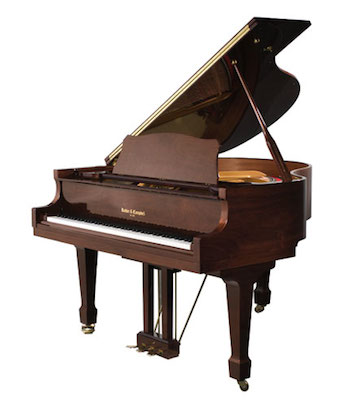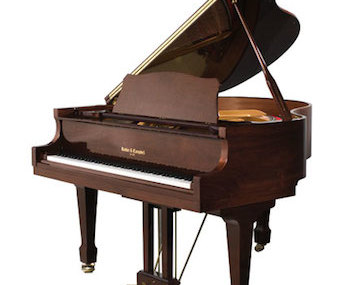1. Sample as many pianos as you can
Pianos are not a one-size-fits-all instrument. Each piano has its own unique features, which is impossible to determine simply by looking at it or studying it from an online site. Its important to sit down and play it to see how the keys feel to the touch, and how the overall piano sounds to your ear. With so many different brands, styles, sizes and options, playing is the only way to decide. Even if you have never played before, you can tell a lot simply by sitting in front of it and touching the keys.
2. Look at new and used
Don’t be intimidated by used pianos. The quality from brand names that have been around for decades in some cases is easily matched to today’s new pianos. However, it is important to understand the history if you are considering used. A used piano sitting for decades in a dark, humid basement could be more trouble than its worth.
3. Test out every key and pedal
Especially on a used piano, make sure every key and pedal is in good working condition. Sit at the piano and start at the bottom working your way up. Even if you’ve never played before, you can still hear if notes are out of tune, or determine which keys are sticking or don’t play properly.
4. Keep in mind where your piano will reside
Nothing can be more frustrating than loving the sound of a piano where you purchased it, only to be disappointed with the sound at home. Room size, ceiling height, ceiling material, flooring, window coverings – all of it impacts the overall sound quality your piano will have.
5. Who is moving your piano?
When you purchase a piano from a dealer, they will usually be able to accommodate your moving needs. But if you buy from a private seller, you will be fully responsible for moving your piano. Keep in mind that a piano is a delicate instrument. It can’t be jostled and thrown into the back of a truck the way you would move a couch or a table. And try getting a grand piano up five flights of stairs; difficult for even the professionals. For the safety of the movers and the piano, its best to have it professionally moved.
6. Do your homework first
Buying a piano can be a big investment. Rather than purchasing the first one you find, shop around and do a little research online. You’ll find many articles on this site, and with a quick Google search you can read more about major manufacturers and the quality of individual brands.
7. Restoration isn’t a bad thing
In some cases, the word restoration can bring suspicion into the equation. If someone tells you a used car has been restored, it may signal a major accident, which could cause more problems down the road. Not so with a piano. Pianos from yesteryear often were built with the highest quality. Restoration is usually performed because the piano still has value, and with certain parts, such as strings and hammers replaced or reconditioned, it continues to increase the value of the instrument. Restored pianos can be a great investment.
8.Tuning is a part of the process
New pianos must be tuned several times in the first year as the piano settles into its new home. Over the years, a piano needs to be tuned on a regular basis to continue working at its peak level. Numbers of hours played does not signify how often a piano must be tuned. Outside conditions continue to impact a piano whether its being played regularly or not.
9. Quality sound can help with longevity
I hear parents all the time say they want an inexpensive piano to start, with the intention of upgrading if their child sticks with it. Instead of starting with a low quality piano, think longevity instead. If you purchase a low quality, out of tune piano just for start up purposes, your child will have trouble “hearing” the sounds of the piano. It won’t sound the same from your home to the instructors room, and its easy to get frustrated and abandon the practice. Quality matters, even to a beginner.
10. Trust a professional
When buying from a private seller, they have one goal in mind: get the piano out of their home. They will do and say anything to make the sale. A professional takes a different approach. A professional wants you to be well informed about your options, and make the best choice for your situation. They want you to be happy with your final selection and have years of enjoyment from your purchase. And if they have been in business for decades, reputation matters, so you can rest assured you won’t be pushed into a quick sale for the money alone.


